Testing Wireless vs Wired High Polling Rate Mice
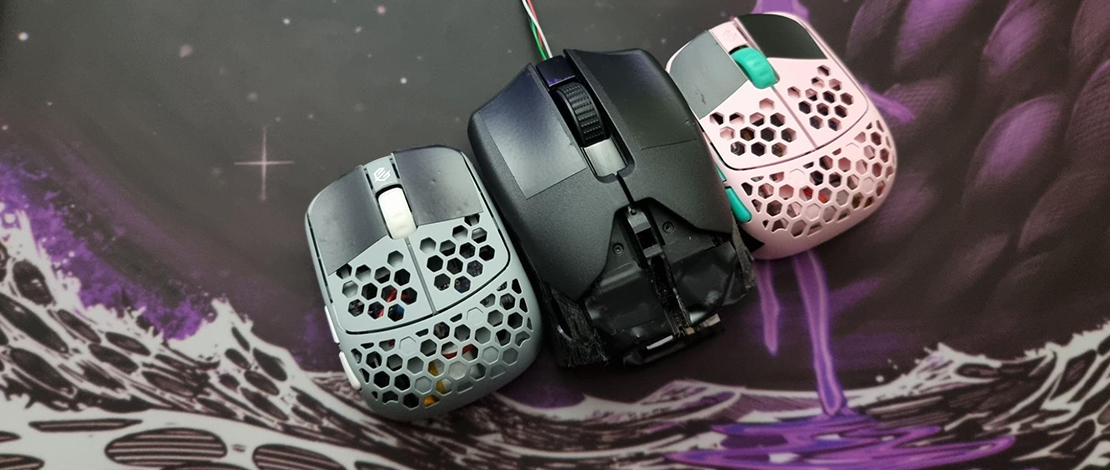
The mouse industry has all shifted towards improving wireless mice and the current race is about who can make mice with a 4000 Hz polling rate or more with a low weight. Wireless tech has come a long way and at this point, a wireless 4000 Hz mouse will have less click/motion latency than a 1000 Hz wired one, but how about if both mice support 4000-8000 Hz?
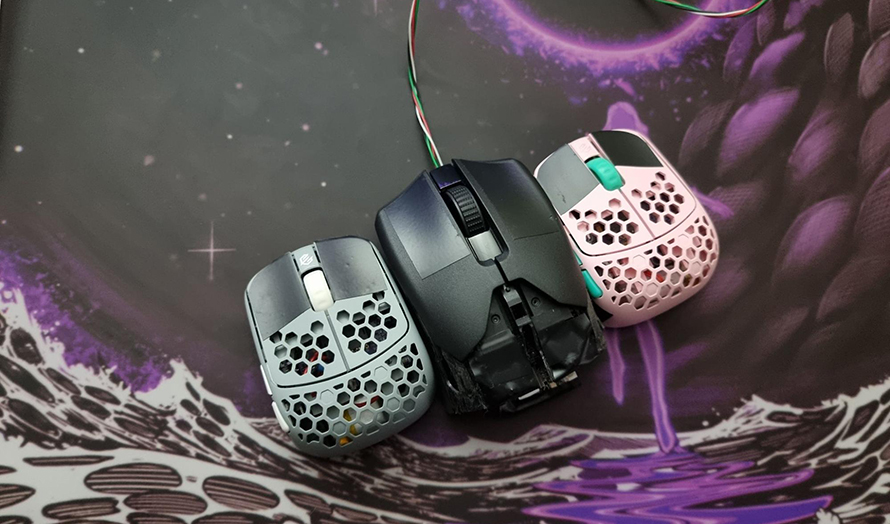
Wireless vs Wired Technology
Even with the optimal settings and closest possible proximity to the receiver a wireless connection cannot ensure a higher integrity to the data signal than a physical cable. This is simply because air can never beat a copper cable meaning that no matter what, if the polling rate is equal for both mice, the wired one will win in motion/click latency.
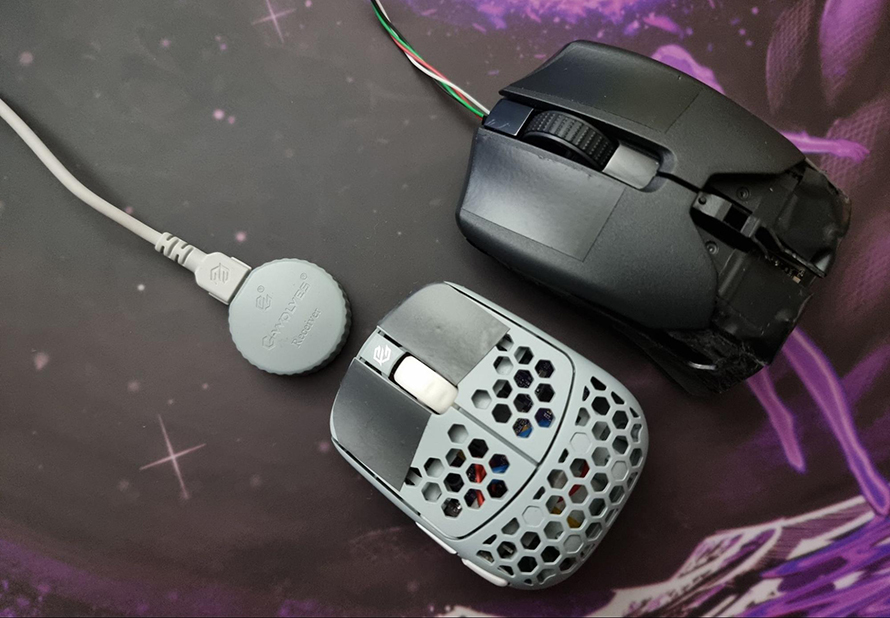
There are however different factors like firmware, sensor implementation, MCU, etc. A wired high-polling rate mouse with bad firmware or bad sensor implementation might still lag behind a very well-designed wireless mouse that supports a high polling rate.
However, the wired mouse will always win if we have a top-end wired mouse running 4000-8000 Hz and a top-end wireless mouse on 4000-8000 Hz.
What Constitutes a Win?
Something to understand however is that the experience of using your mouse is not only about the performance (although this is an extremely important part). For many having a wire alone would be a huge downside and would turn them to wireless tech even with the latency penalty.
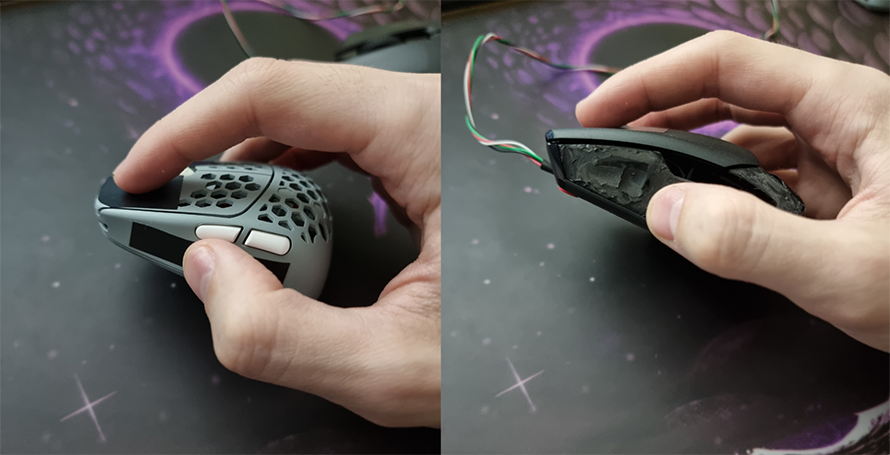
The latency penalty itself isn’t that big so people who do not care about ~5% improvement in certain performance aspects might never even care about the advantage of the wired mouse. A better shape, better coating, better clicks/switches, and other factors might simply be more important than a minor improvement in performance for gamers.
Improving a Wired Mouse
There are however ways in which you can improve the wired mouse by modding it and making it as close as possible to a wireless one in feel but also benefit from the extra performance. A simple example would be my mod on the Razer Viper 8K, where I tried to make it as similar as possible to my main wireless mouse, the G-Wolves HSK Pro 4K.
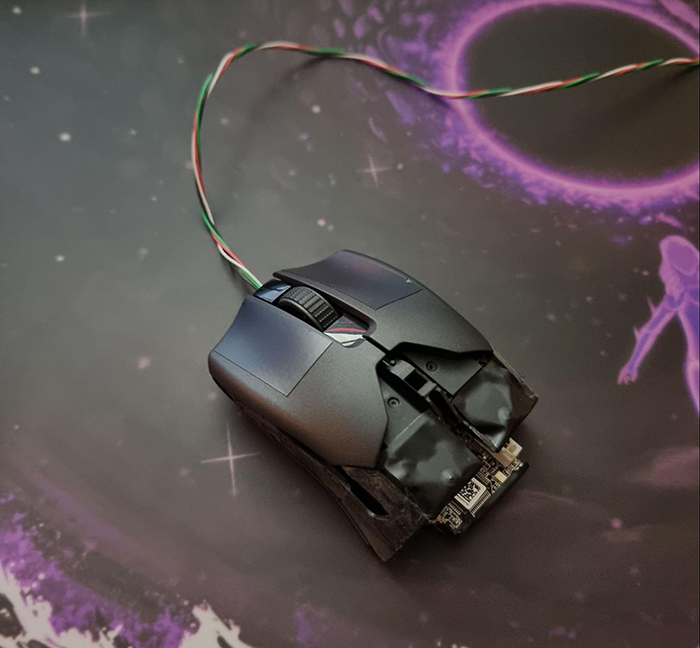
The mod takes a considerable amount of time, and you are technically ruining the mouse for any other purpose than maximizing its potential as a fingertip mouse, but it made the thing usable for me so it is a valid option. With the striped cable, much lighter shell, and the wired 8000 Hz polling rate the Viper 8K becomes a viable option for me instead of being just a one-time mouse.
Testing Wired vs Wireless Polling Rate
The most basic way to see the advantage of a wired high polling rate mouse over a wireless one is to use MouseTester and poll some graphs. A tighter graph with smaller deviations shows a better-performing mouse – simple as that. The way graphs look also depends heavily on how optimized your PC is, so if you have a bad system, your polling will be bad even on wired mice.
Viper 8K:
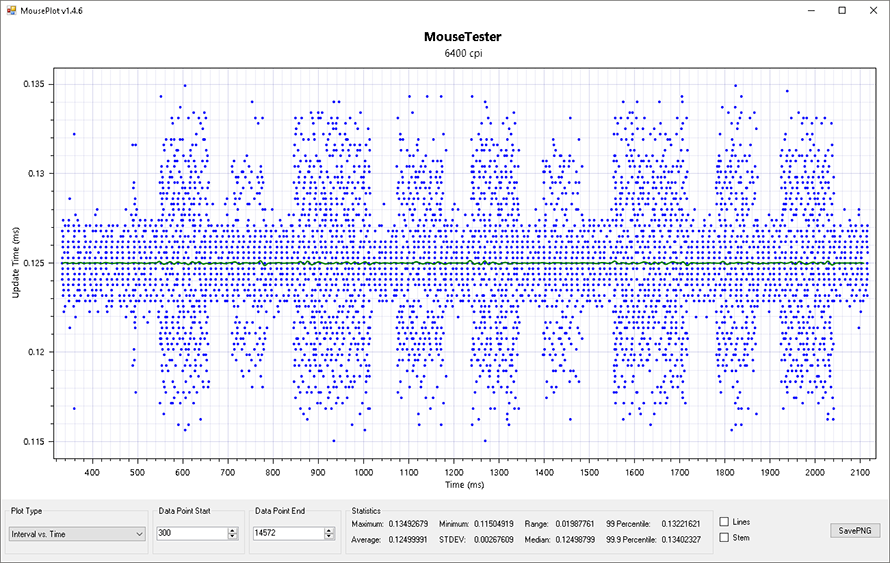
HSK Pro 4K:
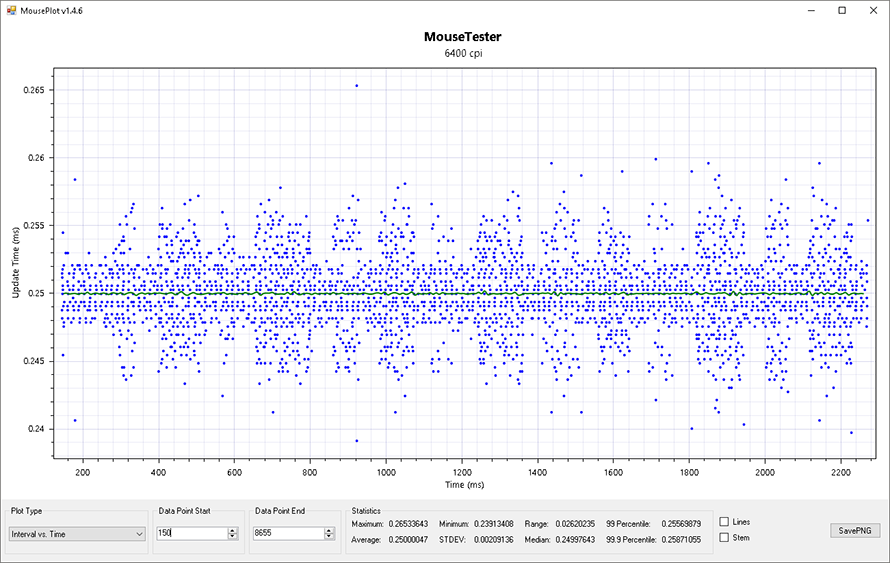
The wireless 4K graph by no means looks bad (at least in my opinion), but the wired 8K is tighter, meaning that the wire is more stable even at 2x the data being sent (8x compared to a 1000Hz mouse).
TL;DR
A wired high-polling rate mouse will always perform better than the best wireless high-polling rate mouse. If the shape and other features of the wired mouse feel good to you (or you modded it like me), there is no reason to jump on the wireless trend yet.
Wired: better performance, not as comfortable to use because of the wires
Wireless: comfortable to use, slight sacrifice in the performance department